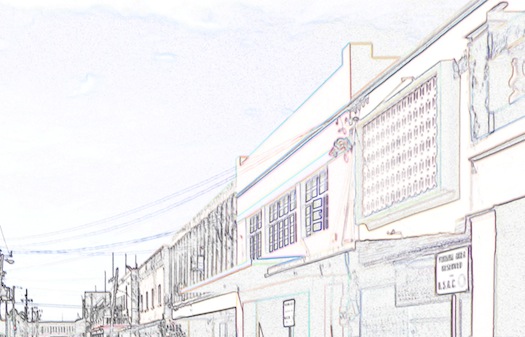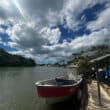By Dennis Chung
CJ Contributor
OVER THE LAST WEEK there have been two issues dominating the media in Jamaica, which illustrates to me that Jamaica’s foreign exchange crisis is driven primarily by the way we approach challenges.
The first is the discussion that has taken place regarding the uncertainty of the PetroCaribe deal because of the death of Venezuelan President Hugo Chavez, and what it would mean for Jamaica’s (and other Caribbean countries’) balance of payments. In the case of Jamaica the immediate effect would be a US$600 million hit.
The second is the fact that the NIR went below the internationally acceptable benchmark of 12 weeks of imports, and the lowest level in ten years.
These two situations are an illustration of what the real challenge is that we face as a country.
In the case of the PetroCaribe uncertainty, the discussions focused primarily on how we can save the agreement, and what prospects we face for doing that if the opposition party were elected in the upcoming general elections. In other words, the conversations have focused around hoping that we can continue to benefit from this arrangement.
This for me is the wrong conversation to have. In other words, this development should be a wakeup call for us, that after 50 years of political independence we still cannot secure economic independence, not just in Jamaica but as a region. The conversation that we need to have is, how we can ensure that we move away from the need to ask another country to support our productive capacity, while putting us into more debt. We also need to ask ourselves, how have we utilized the PetroCaribe debt to spur greater productivity and increase our competitiveness? How has the manufacturing sector benefited from the use of the PetroCaribe debt to enhance the efficiency of their energy use?
These are the questions we need to ask ourselves so that we can get to a solution. And note I used the term PetroCaribe “debt” rather than “fund”, as no matter how nice the arrangement sounds it really is just more debt that we are accumulating.
We rightly should be grateful to Chavez and his government, for allowing this facility to the Caribbean nations, but as a region we must also ask ourselves if we have been using this facility in the best way for the improvement of the country, productive sector, and the people. In other words after so many years benefitting from the PetroCaribe debt, are we still not facing a more serious energy and balance of payments crisis.
The second issue of the NIR seems to be a recurring theme. Whenever the NIR starts to decline we are always consumed with discussions like when will the International Monetary Fund deal be signed, or can the government access multilateral support or private capital.
In both these instances, the conversation we have in response to the crises is about how we can continue to live another day in dependency syndrome, rather than how can we eliminate the need to face these crises again.
This was brought home to me recently in two discussions I had this week.
The first was with someone who was coming to the end of a contract of employment and I asked the question, what are your plans after the contract has ended. The response was that something will work out. When I tried to engage the person on making plans, and not just leaving it to chance, the response was that Jamaica was a difficult place to live in and that the earnings was not enough, and the solution was to leave Jamaica. Contrast that with someone else who just a few months ago was earning less than the person, who said to me that she wanted to start a business and today earns more than she did and is in a growing business.
So I said to the person that the problem you have is that you always try to blame everything around you for the problem you are having when the problem really is that you have failed to act.
The other situation is where recently I addressed a group of persons about what they need to do to improve their lives, and in particular what they need to do about improving their health. This came out of my most recent book.
This set of persons has significant challenges in relation to their health, but everyone who was there seemed upbeat about their chances because they were determined to address the root cause of the problem. Because of this attitude, and approach to dealing with the challenge they face, some reported on the progress they were making.
So it is with our foreign exchange crisis, which has been with us since the 1970s. If we are to solve it then it is going to require that we do a lot of things differently. It is going to mean that we recognize that the problem to our energy crisis is not to defer some of the payment for our oil bill but reduce the cost of energy significantly by generating energy more efficiently, using a diversified energy source, and through an improved public transportation system.
It is also going to mean creating greater productivity in agriculture by dealing with crime, having greater economies of scale, and better marketing of our produce. It is also going to mean that government becomes a facilitator of the productive sector, and economic activity generally.
If we are to solve our foreign exchange crisis then the discussions about the PetroCaribe debt must move from how likely are we to save it to how quickly can we get to a position where we do not need it.
Dennis Chung is a chartered accountant and is currently Vice President of the Institute of Chartered Accountants of Jamaica. He has written two books: Charting Jamaica’s Economic and Social Development – 2009; and Achieving Life’s Equilibrium – balancing health, wealth, and happiness for optimal living – 2012. Both books are available at Amazon in both digital and paperback format. His blog isdcjottings.blogspot.com. He can be reached at drachung@gmail.com.







